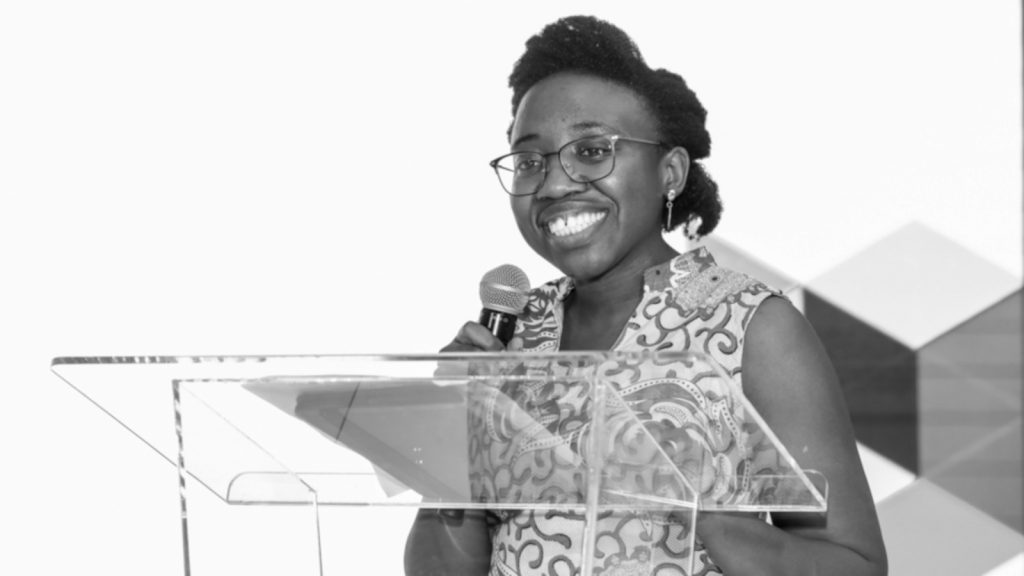AI chat is no longer just about faster answers or conversational tone. Search.com, a division of Public Good, has launched a generative AI search…
Quality of entrepreneurs in Anzisha Prize is up ‘tenfold’ – initiative’s deputy director

In its nine years the Anzisha Prize has got better at scouting for top young entrepreneurs — and in so doing the initiative has seen a “tenfold” improvement in the quality of applicants, says Anzisha deputy director Melissa Mbazo-Ekpenyong.
The Anzisha Prize was set up in 2010 as a programme of the African Leadership Academy in partnership with the Mastercard Foundation.
It seeks to award young entrepreneurs who have developed and implemented innovative solutions to social challenges or started successful businesses within their communities.
Speaking on the sidelines of the Anzisha Prize Forum in Johannesburg last month, Mbazo-Ekpenyong (pictured above) pointed out that when ALA and the Mastercard Foundation launched the programme nine years ago, the Anzisha team were very impressed if one of the selected entrepreneurs created even one or two jobs.
This year’s top 20 entrepreneurs had an average of 10 full-time employees and about 25 part-time employees.
“So, definitely the quality has improved,” added Mbazo-Ekpenyong.
She attributes the improvement to how the Anzisha team has refined its criteria as well as the way it scouts for entrepreneurs. The growth of the brand could also have made it easier for young entrepreneurs to learn and know about the programme, she reckons.
Anzisha Prize 2019 top three
This year’s Anizisha Prize was won by 21-year-old Congolese entrepreneur Yannick Kimanuka who walked away with $25 000 in prize money to use to fund her business.
Kimanuka was selected for Kim’s School Complex, a nursery and primary school in the North Kivu province of the Democratic Republic of Congo (DRC) which aims to improve how children perform academically in her community.
Kimanuka said the business’s major problem is currently around infrastructure.
“We’re going to use the money to build more classrooms to allow more students to have access to our education,” said Kimanuka.
AquagriTech founder 19-year-old Osvaldo Rey Mokouma, who is from the Republic of Congo, was named first runner up and received $15 000 in funding.
Mokouma’s company grows fresh vegetables and fruit by using urban bio-waste and a system that produces fertiliser from fish.
He said he decided to start the business after realising that most goods manufactured in the country were not eco-friendly and used production methods that wasted resources.
He pointed out that his project has made both an environmental and social impact.
“Environmentally we have reduced the rate of organic waste. We have managed to collect two tons of organic waste and that’s very good for the environment, that’s very eco-friendly. Socially, we are creating jobs by employing six people,” added Mokouma.
Eco Makaa founder, 22-year-old Kenyan Cecil Chikezie, was announced as the second runner up and won $12 500 in prize money. His Nairobi-based business connects local small-scale fuel briquette producers to buyers.
Since launching the business last year, Eco Makaa has sold 10 tons of briquettes, which has helped supply over a thousand Kenyan households.
The community-based business uses briquette making machines that are owned by members of the community. This, Chikezie said, helps reduce overhead costs.
Eco Makaa currently employs five full-time and 17 part-time workers, as well as two farmers who provide material for the briquettes.
Chikezie’s aim is to convert the 71% of Kenyan households that use wood charcoal as fuel, to become his customers.
“To do this we are going to work with charcoal sellers so that we convert them to briquette sellers. If we are able to convince them about our briquettes that means they are able to convince their buyers that briquettes are the future,” he said.
‘We are not looking for sob stories’
Mbazo-Ekpenyong explained that as part of the criteria used during the Anzisha Prize judging process, the team looks for effective and scalable business models, job impact and leadership potential among those young entrepreneurs it ends up selecting.
“We want people who want to take it to the next level like Yannick. She runs a school and its pretty small. With an injection of some cash, she can build more classrooms, she can impact more young people. That’s what’s important to us,” she added.
Mbazo-Ekpenyong said underlying the five criteria is the question of how hard is it for this person to achieve what it is they are achieving in the circumstances that they are in.
“Think about Yannick, she’s doing such an amazing job where she is and she’s at the border of DRC, close to Goma where there’s conflict and reported cases of Ebola,” she said.
She added that the fact that Kimanuka has been able to surpass these challenges and achieve what she’s achieved is “amazing”.
“In the case of Yannick it’s so difficult for her to do what she’s doing in the situation that she’s in. And, it’s not a sob story, it’s not a feel sorry for me story. It’s just recognising that ‘wow, this is hard and you deserve the celebration’,” says Mbazo-Ekpenyong.
Read more: 21-year-old Congolese entrepreneur Yannick Kimanuka wins $25k in 2019 Anzisha Prize
This story appeared originally on the Anzisha Prize’s blog on 13 November. See it here.
Featured image: Anzisha deputy director Melissa Mbazo-Ekpenyong speaking at the Anzisha Prize Forum (Supplied)
The Anzisha Prize seeks to fundamentally and significantly increase the number of job generative entrepreneurs in Africa, and is a partnership between African Leadership Academy and Mastercard Foundation. Through Ventureburn, they hope to share inspirational and relatable stories of very young (15 to 22 year old) African entrepreneurs and the people that support them. [learn more]


